WILLIAM BAIN
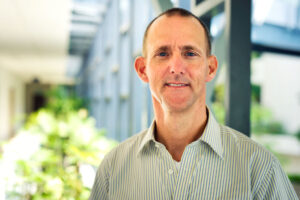
Professor William Bain (NUS Political Science) recently received the FASS Award for Excellent Researcher (AER), which is presented to researchers based on the overall impact and strength of their research. The successful researcher would have “achieved consistent research excellence, produced a piece of research of great impact, and be recognised by the research community as having achieved a significant breakthrough.”
Prof Bain's primary research interests are in political theology, international relations, international political theory, and the history of international thought. He is a Research Associate at the NUS Centre for Legal Theory and Centre of Advanced International Theory (CAIT) at the University of Sussex. He is also editor-in-chief of International Relations and serves on the advisory boards of several international journals.
Prof Bain has published numerous articles in top academic journals, such as Review of International Studies, Journal of International Relations and Development, History of European Ideas, and History of Political Thought, and chapters in volumes published by Cambridge University Press, Oxford University Press, Routledge, Palgrave, and others. He has authored two books, Political Theology of International Order (Oxford University Press, 2020) and Between Anarchy and Society: Trusteeship and the Obligations of Power (Oxford University Press, 2003), and edited and contributed to Medieval Foundations of International Relations (Routledge, 2016) and The Empire of Security and the Safety of the People (Routledge, 2006).
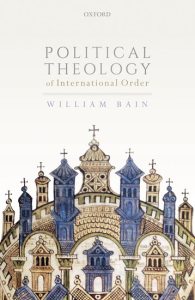 Political Theology of International Order focuses on the way in which theology shapes thinking about international order and fundamental institutions, such as anarchy, the balance of power, and constitutionalism. It has been reviewed in Millennium, Ethics and International Affairs, Modern Theology, Contemporary Political Theory, Review of Faith and International Affairs, Cambridge Journal of International Relations, First Things, Law and Liberty, Perspectives on Politics, and Terrorism and Political Violence, and will be reviewed in Journal of International Political Theory and Global Intellectual History.
Political Theology of International Order focuses on the way in which theology shapes thinking about international order and fundamental institutions, such as anarchy, the balance of power, and constitutionalism. It has been reviewed in Millennium, Ethics and International Affairs, Modern Theology, Contemporary Political Theory, Review of Faith and International Affairs, Cambridge Journal of International Relations, First Things, Law and Liberty, Perspectives on Politics, and Terrorism and Political Violence, and will be reviewed in Journal of International Political Theory and Global Intellectual History.
We congratulated Prof Bain and spoke to him about his research work.
1. What inspired you to write Political Theology of International Order?
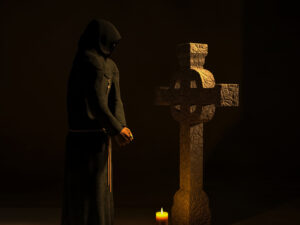
I stumbled into the project before I was properly inspired. The serendipitous moment was a used book on the medieval contribution to political thought, which I purchased for a modest sum of about $3.00. On reading it, I appreciated the extent to which my perception of the European Middle Ages was a caricature of a rich and fascinating period; indeed, medieval thought is less dark than commonly imagined and modern thought less bright. I was inspired by continuities between medieval and modern that International Relations scholars essentially ignore. In excavating these continuities I came to realise that dominant ways of thinking and speaking about international order are, in fact, a worldly application of a medieval theological pattern.
2. What initially drew you to the study of political theology and international relations?
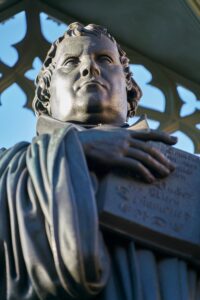
A progressive story of secularisation constitutes the field of International Relations, according to which a medieval world defined by faith gives way to a modern world defined by science, reason, and politically speaking, the sovereign state. Taking theology seriously suggests the story international relations scholars tell about their subject is badly skewed. I show that the conceptual vocabulary of the field—anarchy and balance of power, system and society, and law and constitutionalism—might not secular in the way they are assumed to be. This is of great importance insofar as theological ideas, rooted in a particular time and place, structure the questions we ask about international relations and the way we answer them, albeit in a world that conspicuous for its cultural and intellectual diversity.
3. What research project are you currently working on?
I am in the very early stages of a new project on the genealogy of the balance of power. The balance of power is a fundamental institution of the modern states system, and yet its ostensible character is derived overwhelmingly from European thought and experience. This prompts a crucial and timely question: to what extent is the balance of power intelligible in Chinese thought? Answering this question is confounded by the conflation in international relations scholarship of two understandings of balance that have distinct histories. Disentangling these histories casts light on the character of a changing world order and contested ideas of legitimacy, rights and justice, responsibility, and so forth.
4. To what extent can your studies of medieval influence on contemporary understandings of human rights be employed to analyse global action and inaction to address the climate emergency?
One of the important contributions of this research is to recover a conception of order that emphasises intrinsic interconnectedness. So, instead of taking the unfettered freedom of discrete things as a starting point (states or persons for example), notions of right use take precedence in favour of the appropriate direction of the environment. Such an approach qualifies the absolute ownership of territory—think the Amazon rainforest—and exploitation of resources, such as burning fossil fuels, by insisting that interconnectedness informs right use of the environment.
5. Which research publications are you most proud of and why?
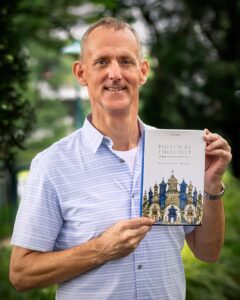 I am most proud of Political Theology of International Order. It took ten years to write the book because I had to master several literatures. Sometimes it is necessary to take a position outside established disciplinary boundaries to open new insights and to question what is taken for granted. This research is very much an exercise in transcending intellectual silos that impede understanding—political science is too often in the thrall of ‘rigour’ that ends up being a prison. To redraw boundaries in International Relations I draw on history, philosophy, law, and theology. One review describes the book as an ‘unorthodox exploration’, which is by design; I have endeavoured to subvert ossified common places to which international relations scholars are often beholden.
I am most proud of Political Theology of International Order. It took ten years to write the book because I had to master several literatures. Sometimes it is necessary to take a position outside established disciplinary boundaries to open new insights and to question what is taken for granted. This research is very much an exercise in transcending intellectual silos that impede understanding—political science is too often in the thrall of ‘rigour’ that ends up being a prison. To redraw boundaries in International Relations I draw on history, philosophy, law, and theology. One review describes the book as an ‘unorthodox exploration’, which is by design; I have endeavoured to subvert ossified common places to which international relations scholars are often beholden.
6. Which political theorists have been most influential for you?
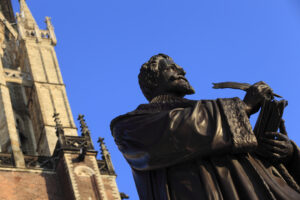
No single theorist—political, international, or otherwise—has been most influential because each individual is part of a larger conversation. What is important, I think, is to listen to as much of the conversation as possible, while striving to avoid becoming bewitched by any one part. Readers of Political Theology of International Order will quickly work out that Hugo Grotius and Thomas Hobbes form important parts of my story; and both occupy important places in the canon of international thought. However, to appreciate their importance it is necessary to consider thinkers who are not included in the international relations canon (which, after all, is a kind of silo in its own right); theologians like John Duns Scotus and William of Ockham are parts of the story, as is Aristotle—the Philosopher to these theologians—the canon lawyer Hostiensis and the international lawyer, Lassa Oppenheim, not to mention a succession of popes and kings.
7. What has been your most memorable teaching experience at NUS?
I have too many memorable teaching experiences to relate only one. The joy of teaching at NUS is the students: they are smart and industrious, and they have a sharp sense of personal responsibility. What is most gratifying for me is to watch my students grow over the course of a semester. It is common for some confide in me at the start of the semester that they are intimidated by theory, only to go on and excel. So, there is no single experience that stands above all the others; good teaching (for me) is about the many seemingly small victories: grasping a difficult argument or abstract idea; struggling for a time and then producing a fine essay; seeing a student’s face light up in tutorial discussion, having experienced that ‘ah-ha’ moment. Occasions such as these motivate me for the next lecture or seminar. It is about making a difference; and that is accomplished in incremental steps, rather than one giant step.
8. Lastly, what future research projects are you planning?
At the moment I am focused on the balance of power project, which is enough to keep me busy for some time!
Thank you very much for taking the time to answer these questions, Prof Bain. And congratulations again on being awarded Excellent Researcher!

